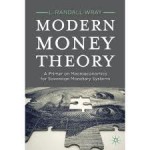By Michael Hoexter, Ph.D.
Mr. Smith’s Unattainable Ideal
Another cause for this polarized view (of capitalism) has been the separation of the study of the functions of the state from the study of the economy, with the eclipse of the older discipline “political economy” of the 18th and 19th Centuries by a supposedly value-free “economics”. Economists, thinking they were isolating the essence of a politics-independent economy, gravitated throughout the 20th Century towards greater mathematization and abstraction. Markets, a copious supplier of often indecipherable numbers, became the raw material for formal models that had little to do with the actual economy. Non-mathematical methods to study politics and social institutions and economically-relevant cultural practices became uninteresting to economists. As a general tendency, economists also became more and more ignorant of the real world around them and almost completely unconscious of the effects of their theorizing on that world, making them ideal candidates to become “useful idiots” for powerful economic interests.












